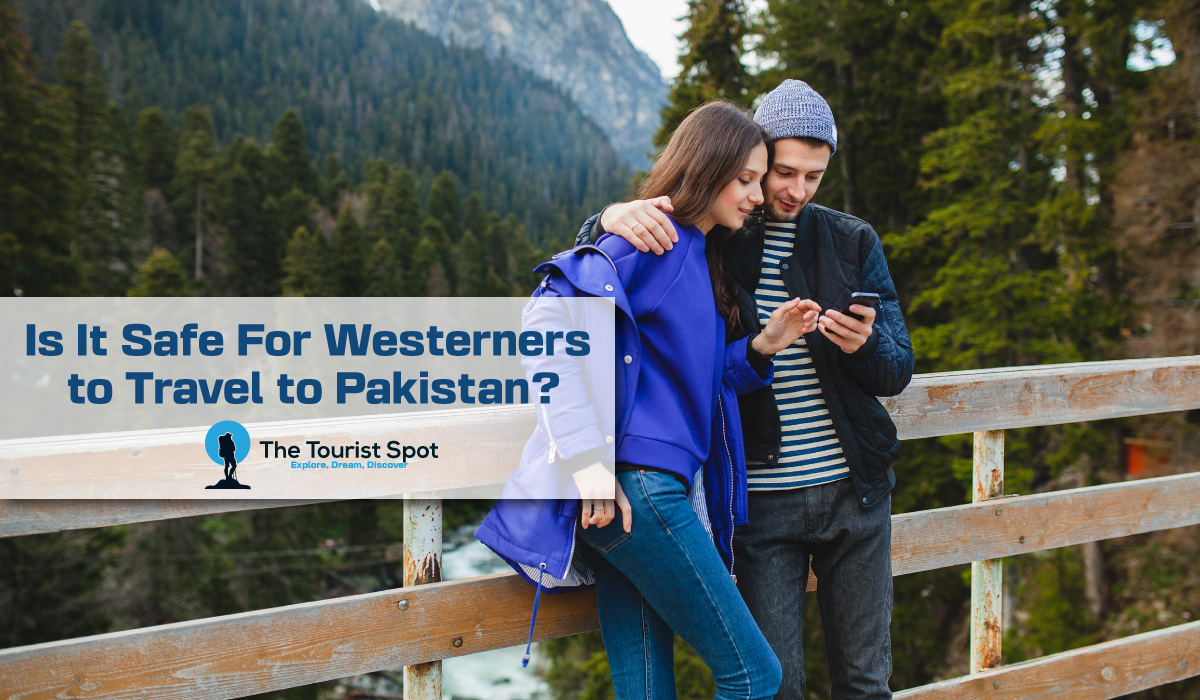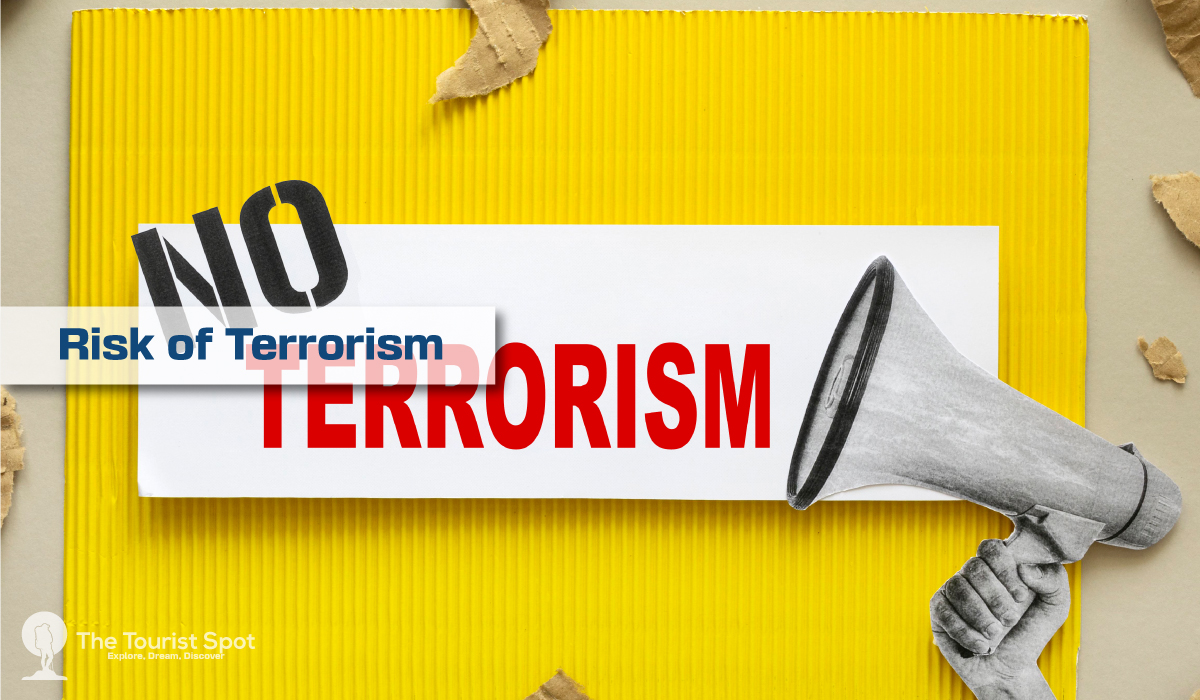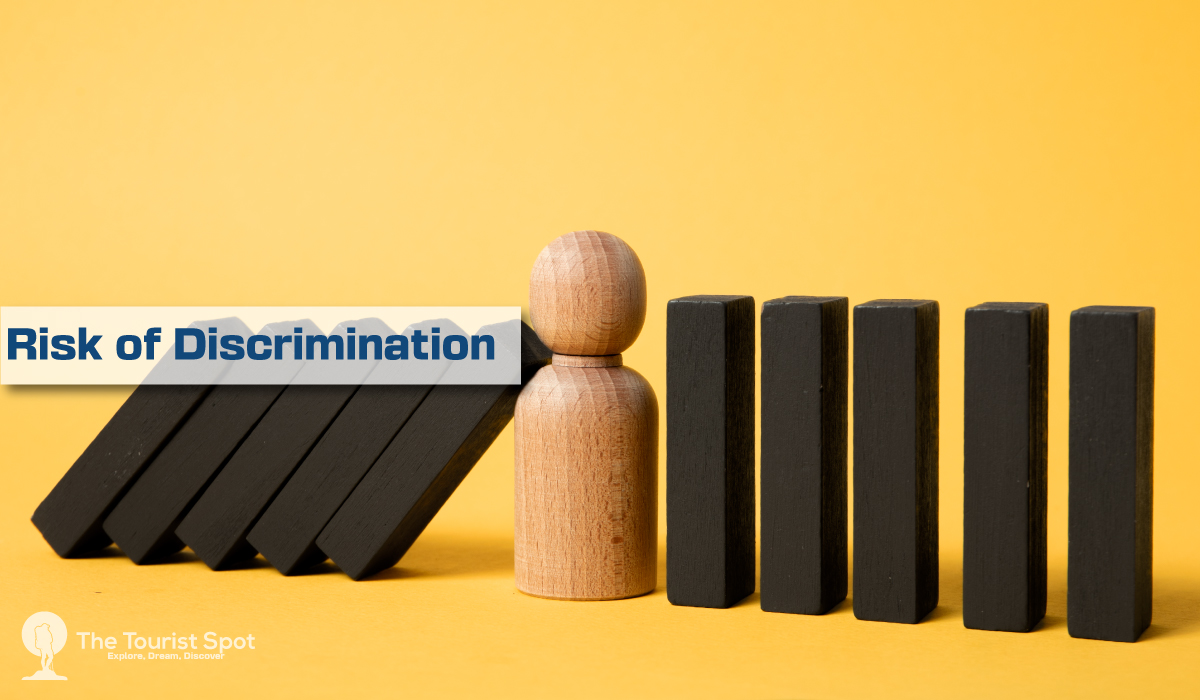Is It Safe For Westerners to Travel Pakistan?
by tourist

Embark on a unique journey as Westerners travel to Pakistan. Discover breathtaking landscapes, vibrant culture, and warm hospitality in this unexplored gem of South Asia
Whether you visit Lahore or the mountains of Gilgit Baltistan, Pakistan offers a wealth of cultural and natural beauty. But, American tourists need to be mindful of local customs and respect religious and conservative areas.
It’s also wise to enroll in the Smart Traveler Enrollment Program and monitor local news for updates before travelling.
Table of Contents
ToggleRisk of Terrorism
For years, Pakistan was synonymous with violence, and even today, many governments advise against travel to the country. While terrorist attacks still occur, the threat is much lower than it was a decade ago. While the security situation is largely stable, terrorist groups continue to target government and religious targets in Pakistan. They also have a safe haven in Afghanistan, making it difficult to eradicate them.
Many terrorists are driven by a desire for revenge against the United States and other Western countries. Their narratives inspire and motivate followers to join their cause. Nonetheless, the vast majority of Pakistanis reject violent extremist views and are proud of their country’s tolerant traditions and history.
Women should dress modestly in public, including wearing a head scarf and covering their cleavage. Men should avoid shorts and tank tops; instead, it’s best to wear a salwar kameez or kurta. Haggling is acceptable and commonplace, but you should treat it as a social exchange rather than an all-or-nothing contest. It’s important to note that Pakistan is a very patriarchal society and family-based culture. Women are rarely seen outdoors on their own, and they should be accompanied by a man unless they are with a group of friends or colleagues.
Although the country is secular by law, Islam is the main religion, and it has some of the world’s most draconian blasphemy laws. It’s essential for travelers to respect Islam, the prophet Muhammad, and religious culture.

Risk of Kidnapping
There is a risk of kidnapping in Pakistan, particularly for wealthy foreign nationals. Kidnapping for ransom is geographically widespread and perpetrated by criminal groups with political and financial motives. The threat is highest in the south and east of the country, especially in areas prone to insurgency.
Visitors are urged to follow local media for information about security threats, and avoid public places like markets, restaurants, government and military institutions. Visitors should also have a contingency plan in case of an emergency and be aware that some land borders may close with little or no notice due to security concerns. Enroll in the Smart Traveler Enrollment Program (STEP) to receive security alerts and make it easier for family and friends to locate you if necessary.
Women travelling alone are at increased risk of harassment and assault, including robbery. Gender-based violence, including honour killings and forced marriages, is a serious concern.
Waterborne, foodborne and parasitic diseases are common, particularly in rural and remote areas. Drink only bottled or boiled water that is labeled as safe and avoid raw foods. Medical facilities are limited in many parts of the country. The government recommends travellers take out health insurance that covers hospitalization and repatriation. Consider vaccination against hepatitis A, hepatitis B and typhoid. Polio is endemic, and travellers should carry proof of vaccination at all times. Visit the Vaccines section and the Entry, Exit & Visa Requirements page for more information on vaccination requirements.
Risk of Crime
Petty crime is very common in Pakistan and it’s best to keep a close eye on all your belongings, especially on public transport and in crowded places. It’s also worth knowing that many Pakistanis are very quick to get offended by foreigners who flaunt societal norms and show disrespect, especially around Muslim holidays like Eid.
Women can face discrimination and harassment, especially in areas where women aren’t allowed to interact with men publicly. Women should always stay away from men in restaurants and trains, and make sure they sit in the female section of the car/bus. Similarly, many local men will interpret any form of friendliness as flirtation, and women should be cautious when talking to male strangers.
The draconian laws on blasphemy are still in effect and you should always be respectful of Islam and religious culture. You may be arrested if you break these laws.
The majority of Pakistan’s population is Muslim, so it’s important to be aware of the societal norms and respect them. This will go a long way in keeping you safe and getting the most out of your trip. It’s also important to know that there are some parts of the country that are unsafe for travel due to terrorism, kidnapping and other risks. This includes Balochistan province, Khyber Pakhtunkhwa (KP), and the former Federally Administered Tribal Areas (FATA). For more information on this, read our full travel advisory.
Risk of Flooding
The risk of floods during the monsoon season is a concern in certain parts of Pakistan. Flooding can impact transport, health and telecommunications services. Check local media for up to date information, and follow the advice of local authorities if necessary.
Getting around Pakistan can be tricky, particularly outside major cities, due to limited public transport and unreliable telecommunications services. Travellers are strongly advised to bring an unlocked smartphone and purchase a local SIM card before arriving in Pakistan. Local operators include Zong, Telenor and Jazz, while the government-owned SCOM is available in northern regions such as Gilgit-Baltistan.
Petty crime is relatively low in Pakistan, and travellers should take standard precautions in big cities like Islamabad, Lahore and Karachi (although petty theft does still occur). It’s also best to avoid travelling during Ramadan, especially in large cities, as it can lead to heightened security and limited food availability.
While terrorist attacks do happen, most of them target non-government organisations, government offices or the security forces. The terrorism threat remains high in Pakistan and there is a risk that attacks could affect visitors, including British nationals. For more information, visit the Foreign and Commonwealth Office’s travel advice page for Pakistan, and our regional risks advice. Enroll in the Smart Traveler Enrollment Program to receive up-to-date security alerts and make it easier for authorities to locate you if needed. It is also important to have adequate medical insurance, and ensure your policy covers emergency repatriation in the event of an accident or illness.
Risk of Earthquakes
Several large earthquakes have occurred in Pakistan in recent years, and many areas remain at risk. Earthquakes can cause serious injuries and destruction and disrupt travel. If an earthquake occurs, you should follow the advice of local officials. You should also check with your insurance provider to ensure that coverage for medical and evacuation is in place.
Earthquake warnings are often broadcast on TV and radio. In addition, a system is in place to monitor seismic activity and send alerts when tremors are detected. Despite these efforts, Pakistan is a country that traverses active fault lines and the density of its built environment amplifies seismic risks. Many buildings are masonry houses with walls that are held together by mortar and lack cross-braces, which can collapse during an earthquake, killing and injuring residents.
Many travellers to Pakistan are lulled into a false sense of security by the relative safety of major cities. However, a surprisingly high number of tourists are injured each year in remote areas due to poorly constructed structures and unsafe methods of transportation.
Travelers should consult a doctor to ensure that they are up-to-date on all vaccinations before departure. Vaccination against hepatitis A and B, typhoid, and measles is recommended. Malaria is a significant health concern, especially in rural areas, so it’s important to take prescription malaria medication before traveling to Pakistan and to continue taking the medicine while there.
Risk of Discrimination
Pakistan is a diverse country with significant religious, ethnic, and tribal diversity. It was founded as a parliamentary democracy that espoused secular ideas, but has experienced military coups and Islamist extremism is growing in the country. It has a national constitution and an international covenant on human rights, but adherence to Islamic values is the dominant culture.
Many of Pakistan’s Muslims are moderate, especially those affiliated with the Hanafi school of jurisprudence or other mainstream Sunni schools. There are also many followers of the Tablighi Jama’at, a reform movement that has influenced Pakistani Islam since 1926. Unlike the more conservative Deoband and Barelwi movements, Tablighi Jama’at is open to women and members of other religions.
There are a number of religious minorities in Pakistan, including Christians (who are number eight on Open Doors’ 2022 World Watch List), Hindus, and Sikhs. The country has one of the world’s most sacred gurdwaras in Punjab, where Sikhism’s founder, Guru Nanak, was born. It is a major destination for religious tourists and the Sikh community has become integrated into Pakistan’s economy.
In a country where many small factories supply clothing and other goods to Pakistani and global brands, workers often face exploitation. Smaller factories are less likely to be inspected and are more likely to refuse the statutory minimum wage or impose short-term oral contracts. Under the United Nations Guiding Principles on Business and Human Rights, both the owners of factories and the companies that buy their products have responsibilities to prevent or address labor abuses.

Embark on a unique journey as Westerners travel to Pakistan. Discover breathtaking landscapes, vibrant culture, and warm hospitality in this unexplored gem of South Asia Whether you visit Lahore or the mountains of Gilgit Baltistan, Pakistan offers a wealth of cultural and natural beauty. But, American tourists need to be mindful of local customs and…
